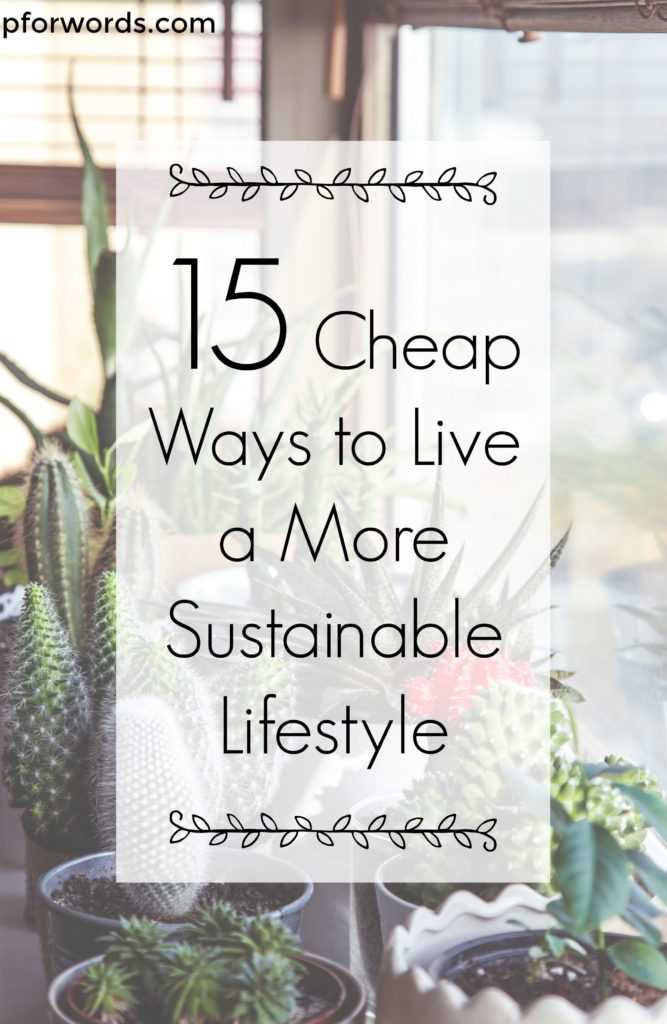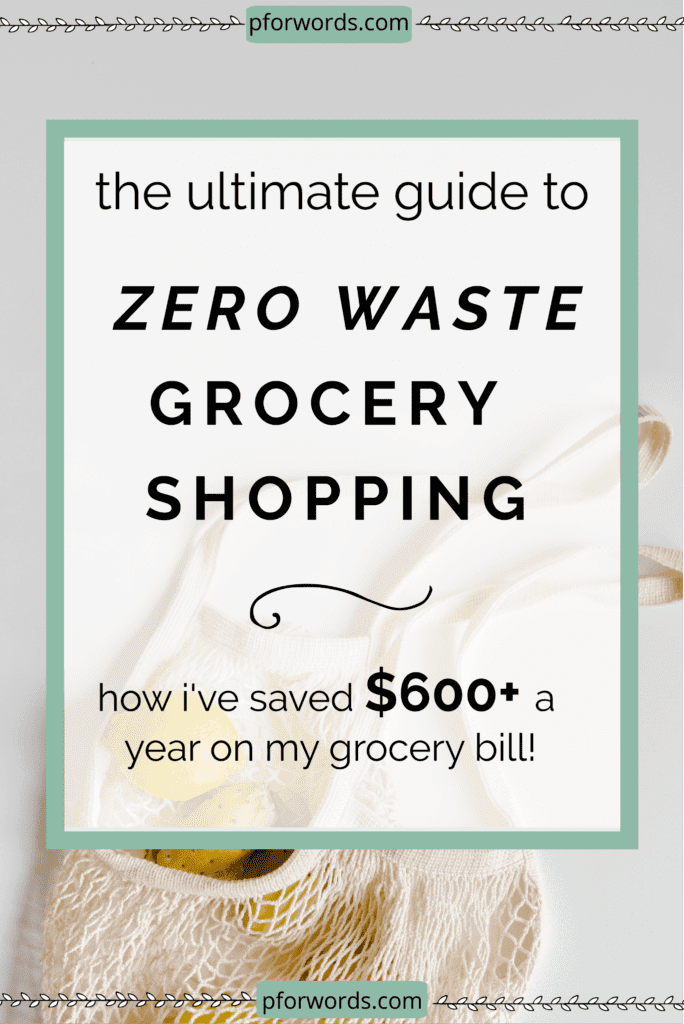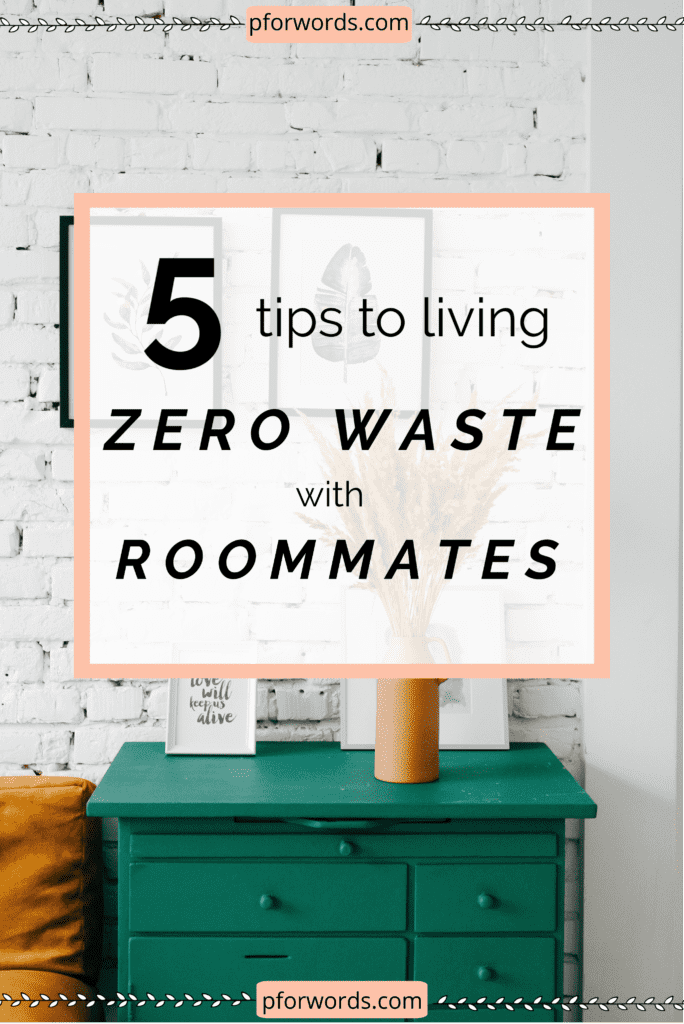20 Zero Waste Goals for 2020
Start off the new year (and new decade) with some zero waste goals to get you living a more sustainable life in 2020. (But really, these are great goals for any time of the year, in any year!)
I hope this either gives you some more ideas on how to live more sustainability or serves as a jumping-off point for you!

20 Zero Waste Goals for 2020
1. Take shorter showers
The average American shower water usage is 17.2 gallons with the average shower length being 8.2 minutes.
That means on average, one minute in the shower will waste 2.09 gallons of water!
And that doesn't even account for how much electricity is used to heat up the water in the first place. An easy way to save water and save money on your water bill is to cut down on how long you're in the shower for. Even shortening a shower by one minute can save gallons of shower water usage.
2. Install low flow showerheads
A simple, yet effective zero waste goal for 2020 could be to install low flow showerheads.
Technology around low flow showerheads has really improved over the last couple of years.
These kinds of showerheads have been engineered for both water-saving and exceptional shower experience.
3. Make your toilet more water-efficient
You don't need to splurge on a new low flow toilet to make it more water-efficient.
Instead, you can put an inch or two of sand or pebbles inside each of two plastic bottles. Fill the bottles with water, screw the lids on, and put them in your toilet tank, safely away from the operating mechanisms.
But be sure at least three gallons of water remain in the tank so it will flush properly.
4. Fix leaky sinks
According to the Environmental Protection Agency, an average household’s leaks can account for more than 10,000 gallons of wasted water each year. This is as much water is needed to do 270 loads of laundry.
Get your Bob the Builder on and fix any leaky pipes you have (or better yet, get a professional to do it.)
5. Use your drier less
Driers require electricity to run, and the alternative, line drying, requires nothing.
A household running a dryer 200 times a year could save nearly half a tonne of CO2e by switching to a clothes rack or washing line. - The Guardian
Plus, air drying will help make your clothes last longer.
6. Find a sustainable hobby
If you don’t already have one, explore some hobbies that will help you lessen your footprint. For example, you could knit, sew, upcycle items, start a garden, etc.
Bonus: most of these hobbies will also help you save money!
7. Volunteer
Give you time to good causes. I particularly love helping out at Food Rescues, where we go around to grocery stores and bakeries to rescue food that they would toss at the end of the night and use that to feed the hungry.
8. Pick up trash outside
This is a free think you can do that will have a major impact on your community! This is also a free thing you can do that will have a major tangible impact on your surrounding environment.
I made a free ebook on 15 Free Ways you can Live More Sustainably to show that it doesn't take money to lower your footprint. If you want access to that, plus other free resources, sign up for access to my content library here.
9. Organize a Trash Pickup Group
What’s better than one person picking up trash? Two or more people picking it up! Leverage your social network and social media to host a trash pickup (look at Reddit, Facebook Groups, and Craigslist.)
10. Start Composting
Organic material that ends up in the landfill (like veggie scraps and tissues) ends up producing methane due to the anaerobic (lack of oxygen) conditions.
And methane is 24x worse for the environment than C02, making it essential that all organic material is composted and returned to the earth.
To compost your scraps, you have two options.
1. Find a service that deals with your organic waste.
The service might pick it up for you and haul it away to be composted at their industrial facility or you might be able to drop it off at a site. Google for composting services in your area to see what might be available.
2. Start your own composting process.
If you have outdoor space, you can start a backyard compost.
If you live in an apartment, you can start an indoor compost.
11. Get involved with your Local Government
One of the best things you can do is to start changing the laws and get your community on board.
Some examples of changes you might want to advocate for are:
Better understand recycling in your area (did you know it changes?)
- Start a composting community garden
- Help everyone understand what your town can actually recycle
- Better understand recycling in your area (did you know it changes?)
- Start a local zero waste/sustainability/climate group that will pressure local government to make changes.
Polly Barks has some really awesome resources on how to become a climate activist on her site.
12. Write to your local business to ask for better eco-practices
Like a local business but have a couple of concerns about their footprint? Write them a nice, but informative letter to let them know there’s a demand for change. Businesses want to appease their customers so if you can get more people on board with this, the better.
Some examples of changes you can advocate for are:
- Get rid of plastic straws
- Use metal utensils
- Eliminate plastic bags
- Adding an air hand dried in the bathroom
See sample script ideas here from GoingZeroWaste
13. Host a Clothing Swap
Update your wardrobe while keeping clothing out of the landfill by hosting a clothing swap with your friends and family (or even community)! Ask everyone to bring over a couple of items they no longer wear. Hang them up and let everyone else pick through the pile so everyone goes home with new-to-them clothes.
14. Leverage your library
Why spend money and resources to buy a new book when there’s probably a well stocked public library near you? Beyond books, libraries have a ton of other resources, including ebooks, movies, magazines, digital newspaper subscriptions, and even movie and t.v. streaming services!
15. Put your shower water to good use
Place a bucket in your shower while the water is heating up to collect it. Then you can use it to water your plants, do the dishes, wash your car, etc.
16. Say 'no thanks' to things you don’t need
The best way to avoid needing to throw something in the landfill is to not even have those things in the first place.
An easy win is to start saying no to the things you don't need, whether it's samples that come in plastic containers, free pens from companies, or even household items that aren't necessary for your wellbeing.
17. Ditch Paper Products
While paper products like paper towels and tissues are compostable, they still aren't great for the environment. They require a tree to be cut down, energy to be produced, emissions to be transported, and are normally wrapped in plastic.
Swap those for reusable cloth rags.
If you don't have any, you can either:
- Invest in a high-quality pack to use for years (I love this kind by Marley's Market because they're soft yet durable.)
- Make your own by cutting up old t-shirts, towels, and sheets.
18. Consume less
Really evaluate your needs to understand if you need that item in your life, or if you’re just buying it for the sake of buying it and the endorphine rush that comes with the purchase. Because, even if the item is second hand, if you don’t need it you’re still wasting your money.
19. Support people and businesses trying to do good
Find businesses that have to create causes and help them out.
You can volunteer for them, donate money, give them exposure if they're a business that's good stuff.
For example, I love to promote Earth Hero because they provide an eco-friendly alternative to Amazon (I hate Jeff Bezos). So not only are they giving people an alternative to Amazon, but they only have items are made in sustainability in mind. My favorite part is that they do the research and layout of the exact characteristics of the product and company that make it eco-friendly.
20. Add a Meatless Day
One of, if not the best, things you can do for the environment is to limit your meat and dairy intake.
The agriculture sector has a multitude of environmental problems from the vast amount of land it requires (which has incentivized cutting and burning down of forest lands, including the Amazon forest), the water it requires to grow the plants to then feed the animals, the methane that's produced when cows fart, and the transportation emissions.
"According to extensive research, if everyone went vegetarian for just one day, the U.S. would save 100 billion gallons of water, and we would reduce greenhouse gas emissions by 1.2 million tons of carbon dioxide.
According to Environmental Defense, if every American skipped substituted vegetarian food for chicken for one meal a week, the carbon dioxide savings would be equivalent to taking more than half a million cars off of U.S. roads." - The Guardian.
By adding in a meatless day, you'll drastically help lower your environmental footprint (and maybe try some awesome new veggie dishes).
Wrapping it up!
I hope this provided some inspiration for you, no matter if you're a zero waste beginner or expert!
If you liked this post, you may also like:
Pin this to Pinterest to save for later!

~Related Content~
Hi, I'm Taylor
Amateur adult. Zero waste zealot. Personal finance fiend. Spicy food supporter. I’m an mid 20’s gal living in Denver, Colorado. My love of the outdoors has cultivated my zero waste lifestyle, which inadvertently fueled my passion for personal finance. Cheers to everyone interested in lessening their footprint while growing their wallet!



